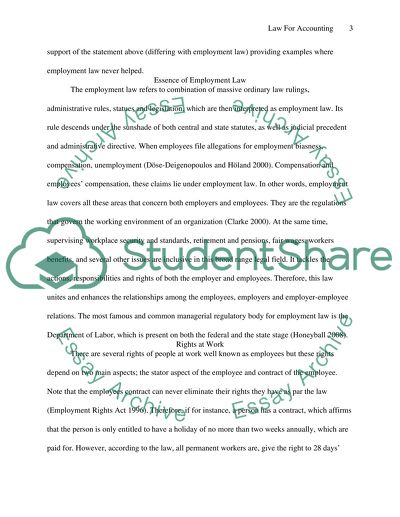Cite this document
(“Essence of Employment Law Essay Example | Topics and Well Written Essays - 4000 words”, n.d.)
Retrieved from https://studentshare.org/law/1395846-essence-of-employment-law
Retrieved from https://studentshare.org/law/1395846-essence-of-employment-law
(Essence of Employment Law Essay Example | Topics and Well Written Essays - 4000 Words)
https://studentshare.org/law/1395846-essence-of-employment-law.
https://studentshare.org/law/1395846-essence-of-employment-law.
“Essence of Employment Law Essay Example | Topics and Well Written Essays - 4000 Words”, n.d. https://studentshare.org/law/1395846-essence-of-employment-law.


